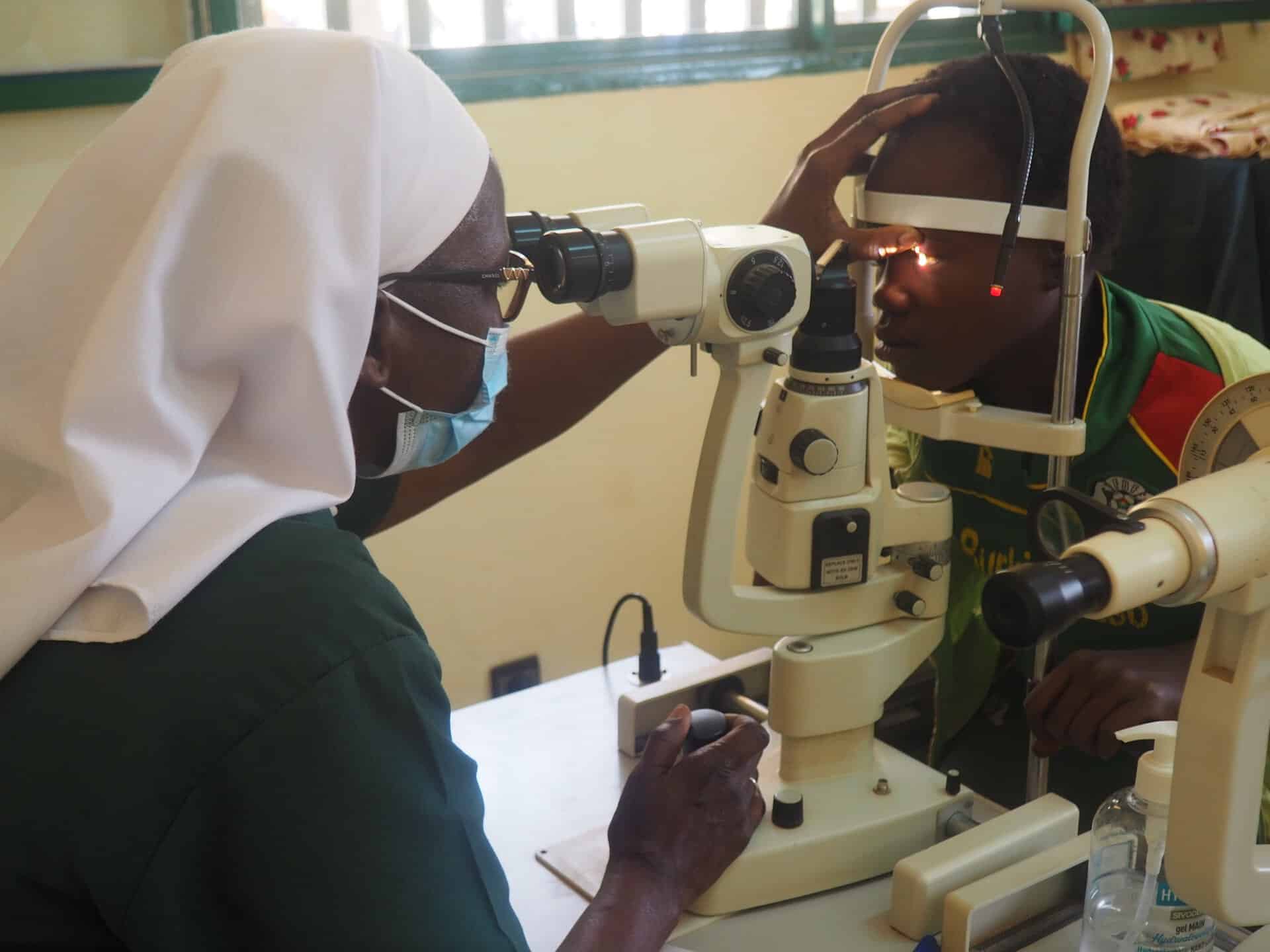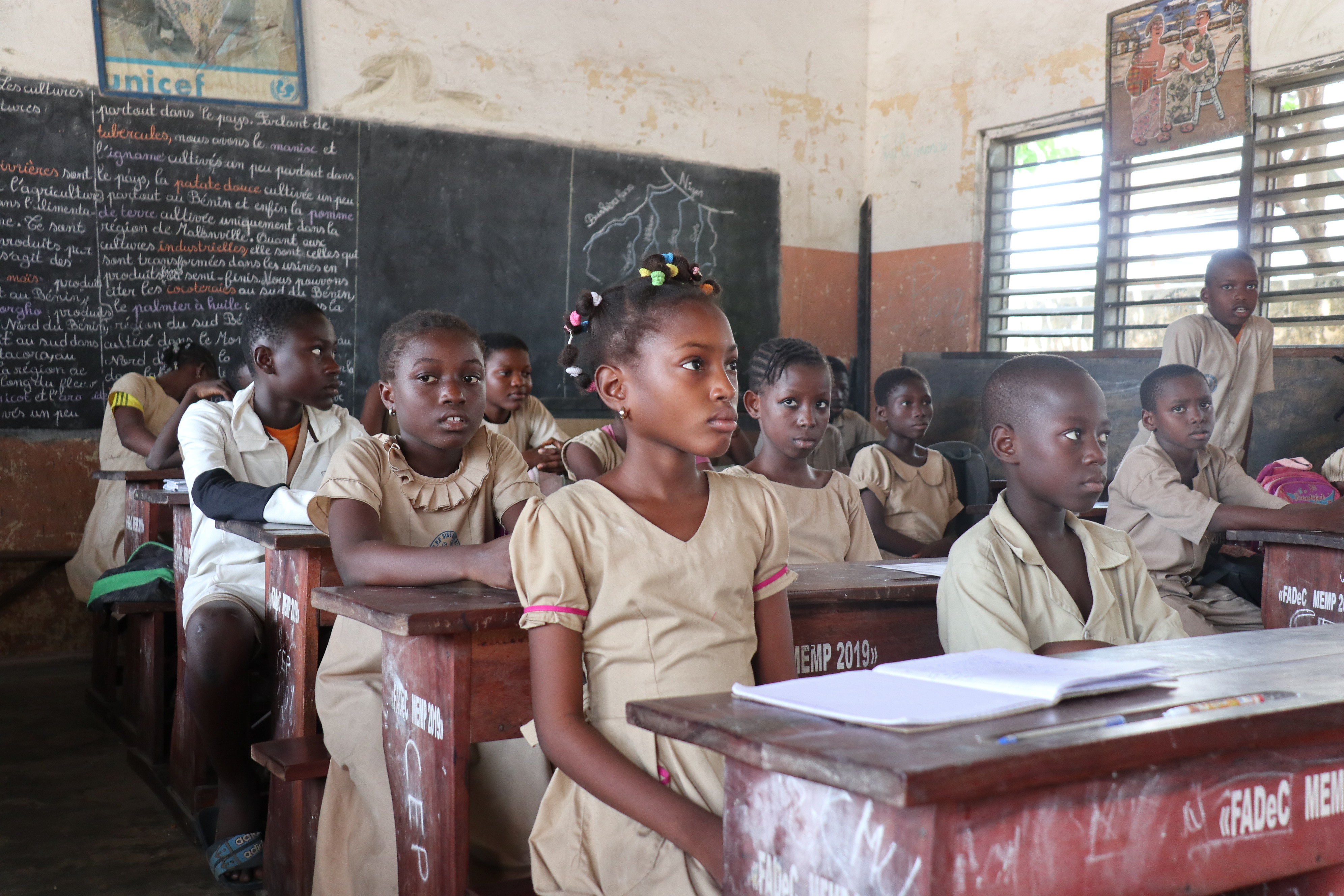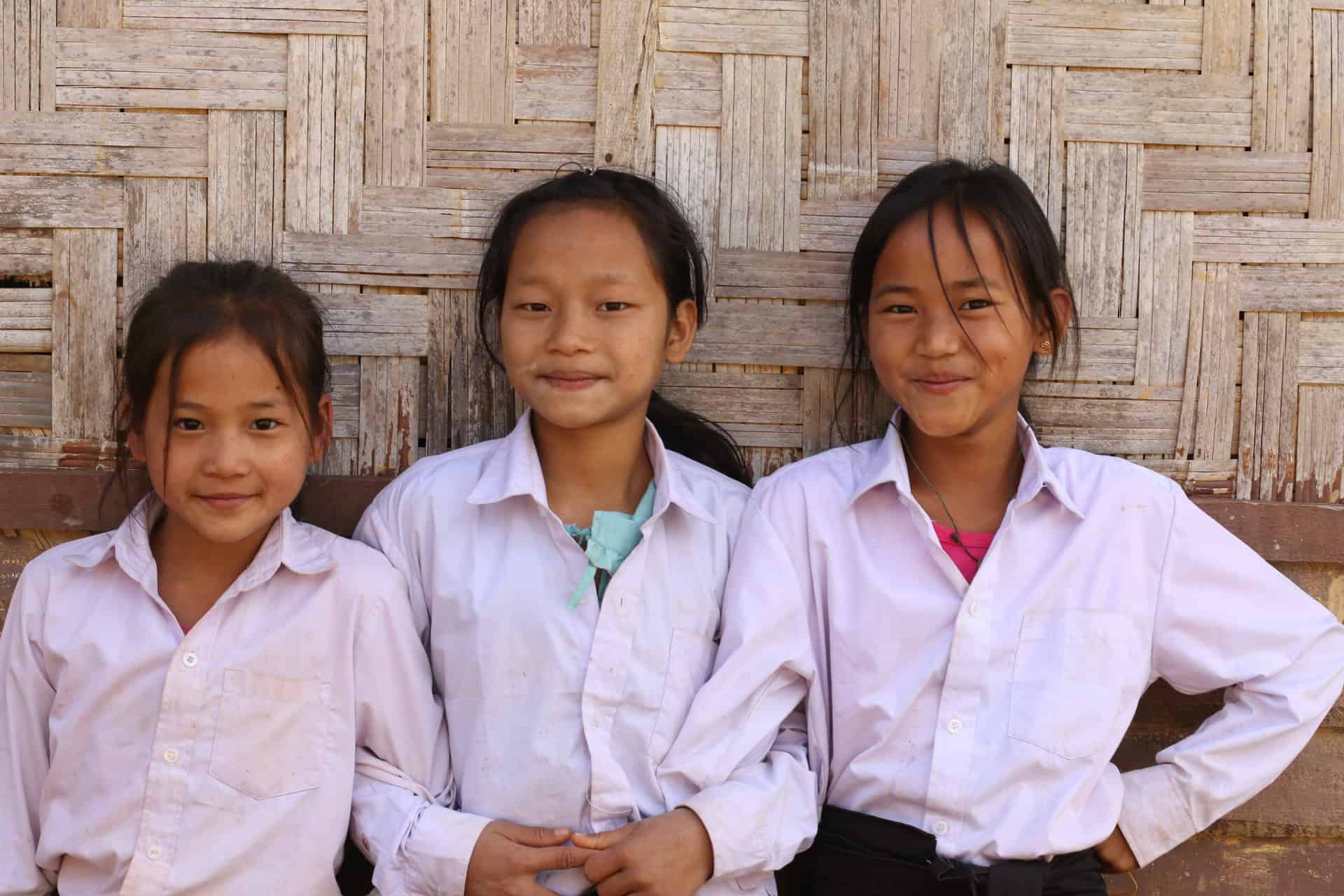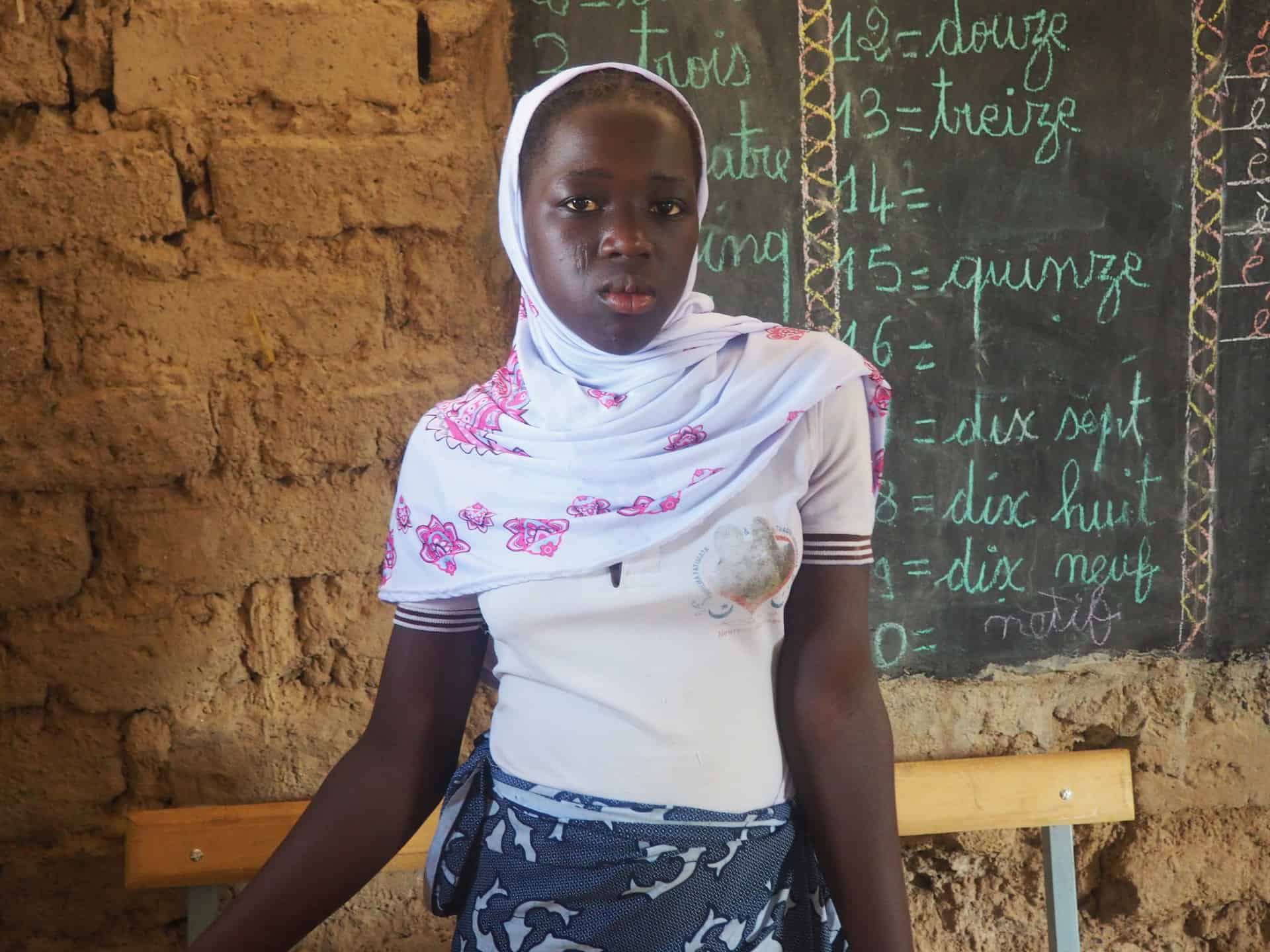©️ Christine Redmond
Created in 2021, CO-SAVED is a project run by Action Education designed to improve the socio-economic development of coastal communities dependent on fishing as their main source of income.
Declining fish stocks due to increased bottom trawling and illegal fishing, as well as climate change, are impacting the livelihoods of many coastal communities in Cambodia. Insufficient access to basic services (education, water, sanitation, training, social services, etc.) is exacerbating the problem, preventing development and impoverishing these communities, which find themselves trapped in a cycle of poverty with no hope of escape.
Education, employment and the environment
The overall aim of the CO-SAVED project (Consortium for Sustainable Alternatives and Voice for Equitable Development) is to enable fishing communities in four provinces (Kampot, Kep, Koh Kong and Preah Sihanouk) to become more resilient through sustainable local economic development and green growth, helping to reduce poverty and inequality. The project focuses on several areas of development, the main ones being education, employment and the environment.

The 4 coastal provinces of the CO-SAVED project
The CO-SAVED project adopts a multi-partner (civil society, private sector, government players, local authorities, etc.) and multi-sectoral approach in order to give the communities concerned the means to form sustainable partnerships. Thanks to funding from the European Union, the project should support 184,550 fishermen and 103,920 schoolchildren in Cambodia to improve their quality of life. The project supports a number of institutions working and providing assistance for development, job creation and community livelihoods.
"We are focusing on disadvantaged communities facing the greatest difficulties, as they are affected by climate change, the Covid pandemic and other factors such as the war in Ukraine," says Samphors Vorn, Director of Action Education Cambodia.
254 schools supported
CO-SAVED communities benefit from improved learning opportunities for children and reliable access to water, sanitation and hygiene in schools. The project, which began 18 months ago, supports children in 254 schools in four coastal areas. These four provinces were targeted because the level of poverty and school drop-out rates among children in these fishing communities are high compared with those in other regions.
The project offers support for the education and training of nursery, primary and secondary school pupils. In addition, it offers those who are not attending school due to financial constraints incentives to help them resume their studies. Action Education's activities focus on improving school infrastructure (renovating buildings, building toilets, etc.) and improving access to quality education for the children of fishermen. The emphasis is on training teachers and communities in the value of education and identifying children at risk of dropping out of school. The project also provides teaching materials (books, etc.), bags, bicycles, uniforms, etc.
Committees have been set up in schools to encourage hand-washing, waste disposal, good hygiene and balanced nutrition. It is important to start these campaigns as early as possible, during the pre-school period, in order to change behaviour. Since the start of the project, we have noticed a "knock-on effect" from the schools to the communities, as changes within the schools can have repercussions on the communities and villagers.
Sem Thong, 16, lives in the commune of Chum Kriel in Kampot province. He was orphaned and brought up by his grandparents, farmers on very modest incomes. He explains: "Thanks to the CO-SAVED project, my school has been renovated and a new library created. I received a grant to buy a bicycle, which makes it easier for me to get to school, whereas before I had to walk along a path that wasn't very safe. Now I don't miss school any more, I study hard and my results are improving! Later on, I'd like to become a policeman".

Sem Thong in the school playground
We are beginning to see an increase in the school enrolment rate and an improvement in the quality of children's learning in the CO-SAVED project areas.
New prospects thanks to oyster farming
Several avenues are being explored by the CO-SAVED project to find alternative livelihoods for fishermen. One of these is an oyster farm project. Led by Tai Chhen, Cambodia's leading oyster researcher, the project aims to introduce oyster farming techniques to coastal communities in order to transform traditional oyster fishing, which is risky because it requires diving to depths of 10 to 20 metres with often basic equipment. Raft culture, popular in Asia, uses cheap materials such as bamboo and plastic floats. A large raft (10m x 10m) can produce more than 8,000 oysters. Currently, 10 paid volunteer fishing families are carrying out a 14-month trial.

Field visit to oyster feeding off the coast of Kampot
Raising public awareness of threatened marine species
CO-SAVED communities are strengthened through inclusive and environmentally friendly economic growth. The Cambodian economy was hit hard by the COVID pandemic, particularly one of the sectors on which it depends most - tourism. The country has reopened its doors and is keen to promote investment in ecotourism.
The CO-SAVED project organises numerous workshops with stakeholders (the public, fishermen, authorities, etc.) in each province to raise awareness of the importance of conserving threatened marine species. The province of Kep, for example, has many endangered marine animals such as dolphins, sea turtles, seahorses, etc. The essential role of marine biodiversity is highlighted, not only from an economic point of view but also for its vital role.
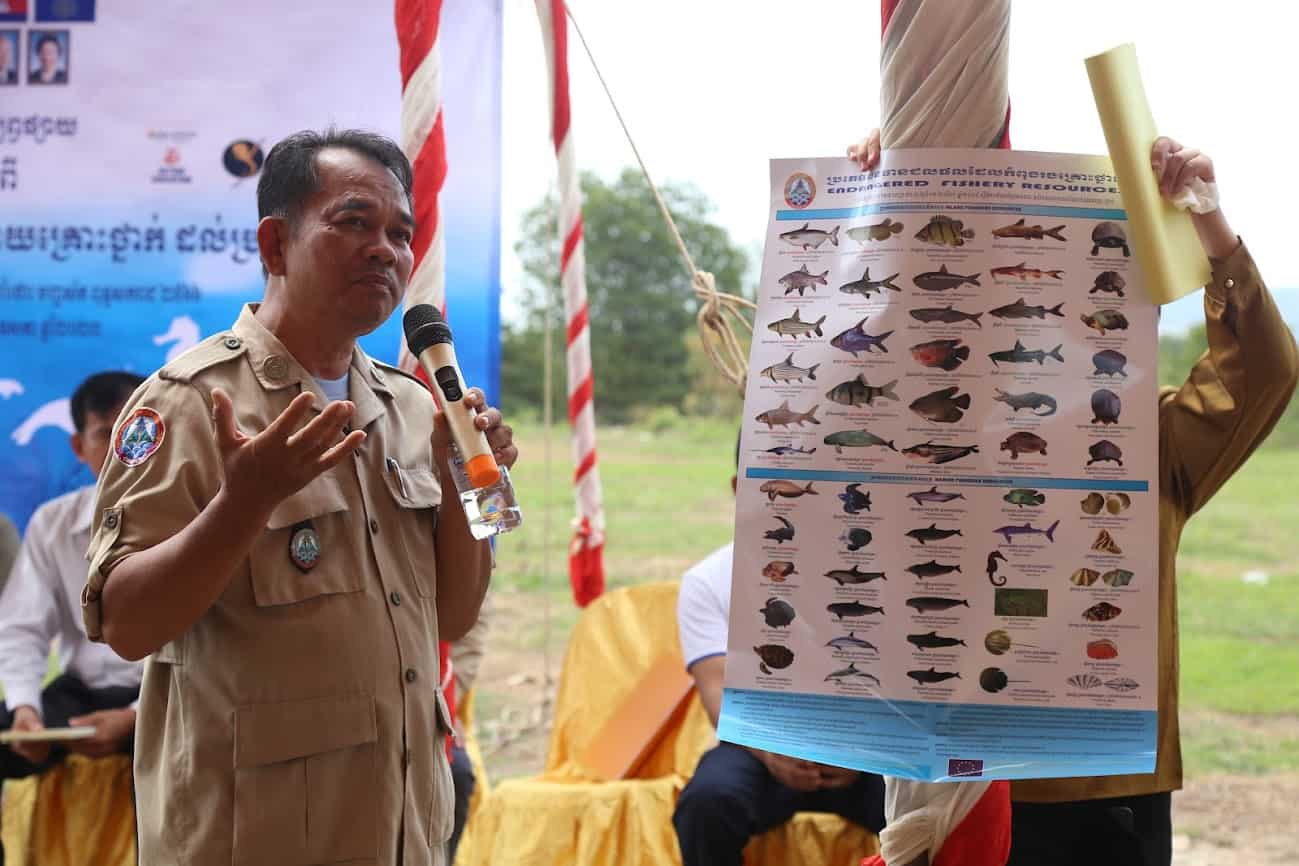
Awareness-raising workshop on the conservation of endangered marine species for fishermen in Kep province
Following a request from the Cambodian government, Action Education is looking into the possibility of extending its project to other schools located in the mountainous areas of the provinces it targets.
To find out more, click here:


